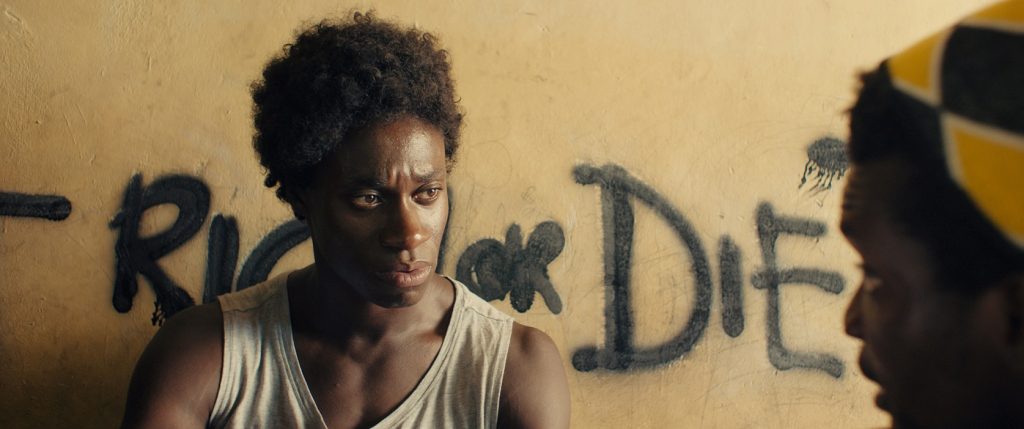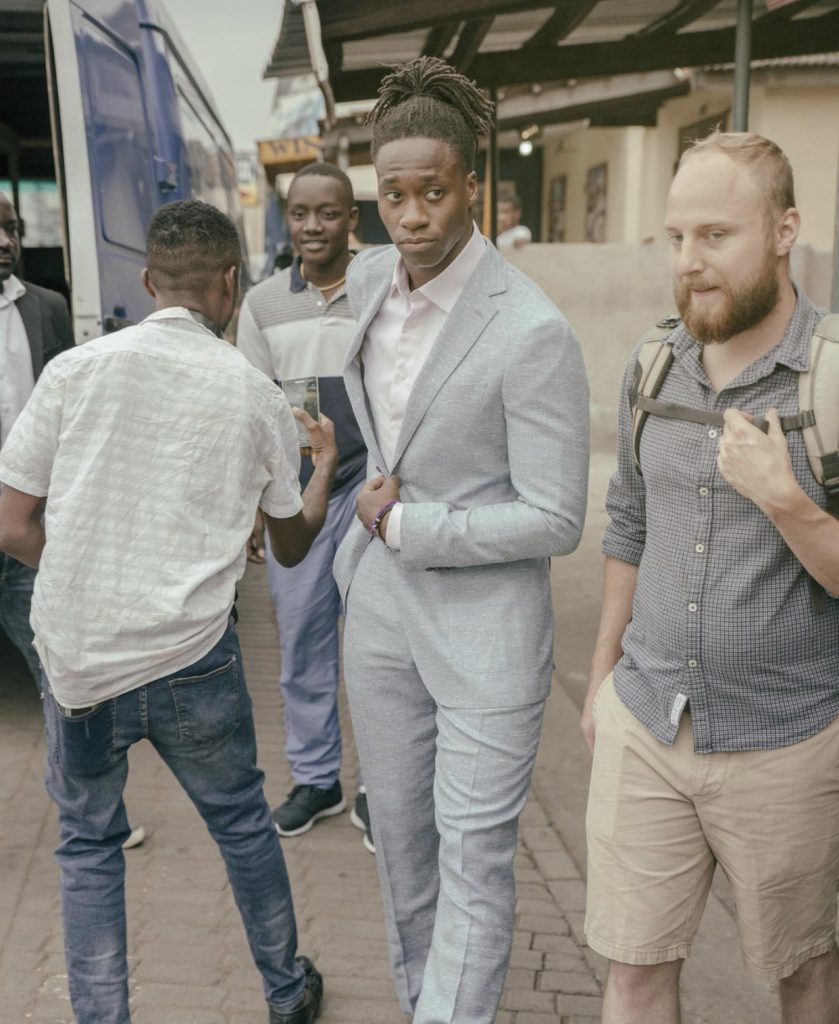
Ghanaian-German Eugene Boateng, actor and producer of award-winning film ‘Borga’ admits his background offered a large contribution to his inspiration to work on the story.
‘Borga’ is a film about a Ghanaian living in Germany who left his home country to seek a better life abroad. We wrote about it here: Africans in Germany, film ‘Borga’ highlights the struggles of African migrants.
Eugene is slowly rising in Germany’s film scene proving he is of exceptional talent. We wrote a biography about the ghanaian star talking about his roots in Ghana and how the movie ‘Borga’ was even filmed in his home-country.
His parents are both from Ghana and despite the hardships they faced they managed to provide for the family. He likened his role to that of his father who felt pressured, after having come to Germany to provide for his family back home in Ghana.
Mr Boateng was able to master this new persona and that resonated with the role he played in ‘Borga’. His uncle also suffered the same fate.
How did his environment shape him as a person?
Mr Boateng talked about where he grew up in Germany with his seven siblings on a street named Kiefernstrasse which was well known as a home for squats in the 1980’s and was known to have connections to the RAF terrorist group.
“The Kiefernstrasse shaped me, and I always mention it because when you lived on that street you were always stamped as poor, as some who lives on a dangerous street,” Mr Boateng told DW.
Living on this street however made him interact with many people from different backgrounds, and this helped him develop a strong sense of community because all the occupants of the street were victims of some form of prejudice. They even regularly had to join forces against the neo-Nazi who tried to attack them.
Boateng joined the project as a producer and the main star of the film. Directed by York-Fabian Raabe, ‘Borga’ is now released in film theatres in Germany, but yet to premier in Ghana.

images courtesy of Eugene’ Boateng’s Instagram.
Borga is a film that tells the story of a Ghanaian migrant who wants to make a life for himself in Europe by making it big but instead, his new life in Germany shatters those dreams.
The film’s title is taken from the Ghanaian word “Borga,” which describes people who have moved abroad to make money — with the implied expectation of becoming successful.
Kojo, played by German-Ghanaian actor Eugene Boateng, is one such migrant, a Ghanaian who moves to the German city of Mannheim with the hope of making his fortune.
‘Borga’ highlights the gap between dream and reality. Kojo manages to only scrape through in Germany by getting involved in an illegal business — his only chance of making a living, and to be seen as a “Borga” success back in Ghana, Infomigrants reported.
The scripts starts in Ghana’s capital where where it captures a documentary like scene following Kojo’s early struggle against diversity. We see him scavenging in piles of scrap metal while growing up in Agbogblishie. One of the poorest suburbs of Accra.
He dreams of a better life awakening new hope in himself and his dreams, his ambitions. He is driven away from home on the quest to seek riches and receive recognition from his family.
The actors speak their native language, mainly Twi, throughout a film that is subtitled and contains only a few moments of spoken German.
What role is highlighted in the film?
‘Borga’ portrays a different story of the black-people-abroad-narrative. It does not focus on the cliche role black Germans occupy such as drug dealers, criminals and fugitives.
“I think what’s important here is that story is told from the perspective of my character. That’s an African perspective; that’s a Black perspective. It simply didn’t exist in Germany until now,” Mr Boateng told DW.

images courtesy of Eugene’ Boateng’s Instagram.
He was responsible for the creative and cultural authenticity of ‘Borga’ and it was important that that be captured in the film so that authentic stories about black people are told and acted out by black people.
Ahead of its theatrical release, the film had already won different awards, including one for best direction at the New Berlin Film Award, the Heimat Europa Film Festival Award, four prizes at the Max Ophüls Festival, including for best feature film and best socially relevant film.
And now Eugene Boateng has also won the German Screen Actors Award for best actor in a leading role with the film.
Sources: Infomigrants, DW
